Can you tell whether a document has been electronically signed? You may be used to handling electronic contracts in your company. However, when dealing with important electronically signed documents, we recommend to check their authenticity.
What to know first?
Viafirma collects eSignatures and legal evidence from the signing process, which will be added to the document and available to be viewed from Adobe.
All information required to verify that the document has been electronically signed can be viewed in the signature panel and in the XML files attached to the PDF once the signing process is completed.
Let’s take a look at some examples to check where this data is located.
Document electronically signed with digital certificate
Electronically signed documents are identified with a signature stamp:

This is a visual element that has information about the signature, together with the website and QR code to verify the signature details, although the most important thing is the data attached in the document.
If we open it in Adobe it will look as follows:
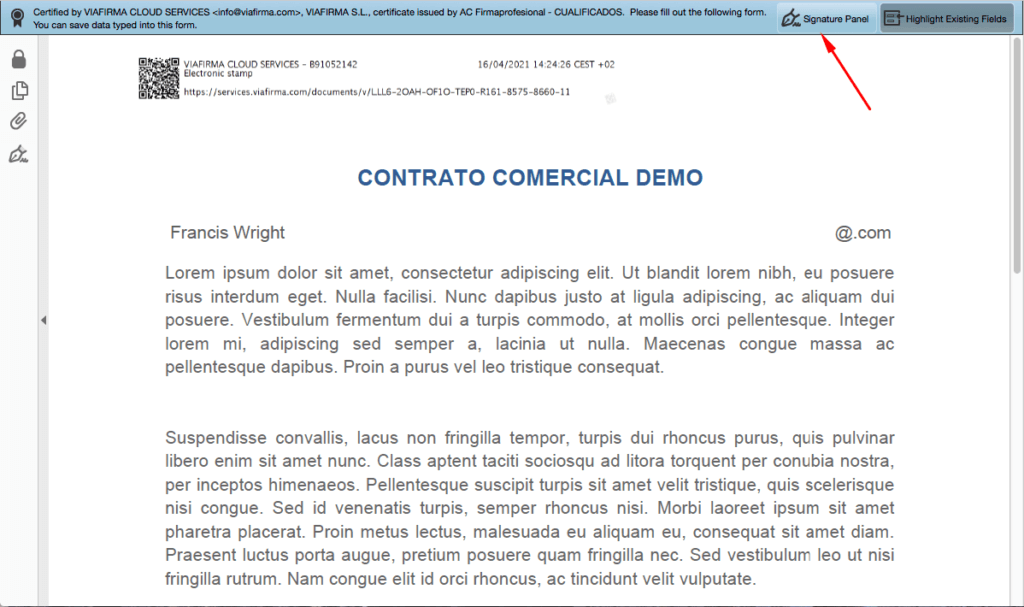
The system instantly recognizes that the document has been electronically signed with a valid certificate.
This is easily recognizable since there is an informative message at the top of the screen that says ”Certified by VIAFIRMA CLOUD SERVICES, VIAFIRMA S.L. certificate issued by AC Firmaprofesional’‘. If we click on the signature panel, we can check the certificate details that has been used to eSign.
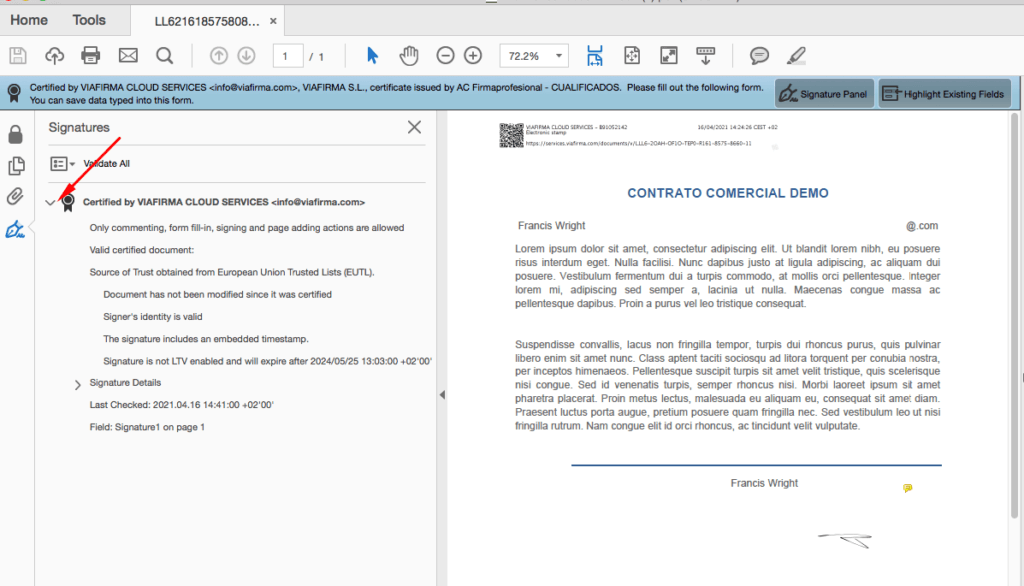
Right click and select properties to see further details of the certificate:
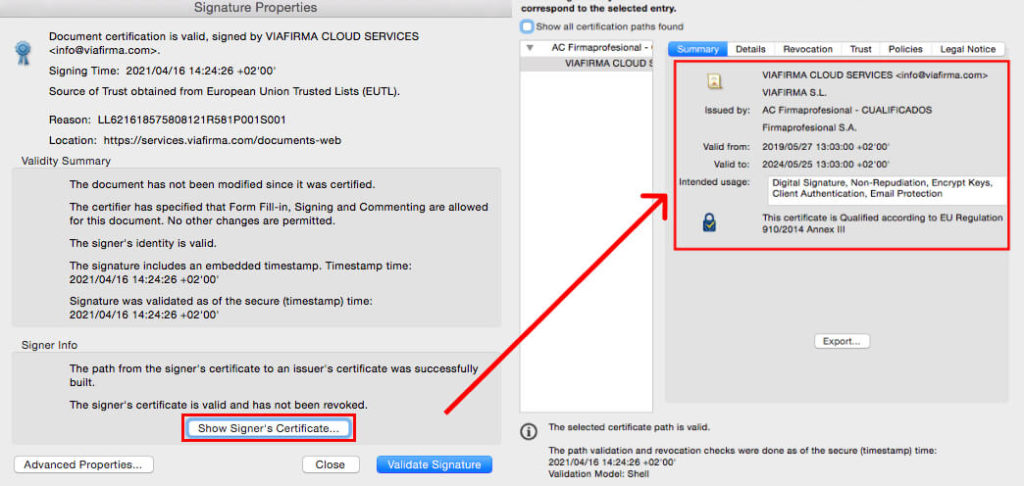
Digital certificate signature assures that the document cannot be altered after the signature
Document electronically signed using SMS OTP signature
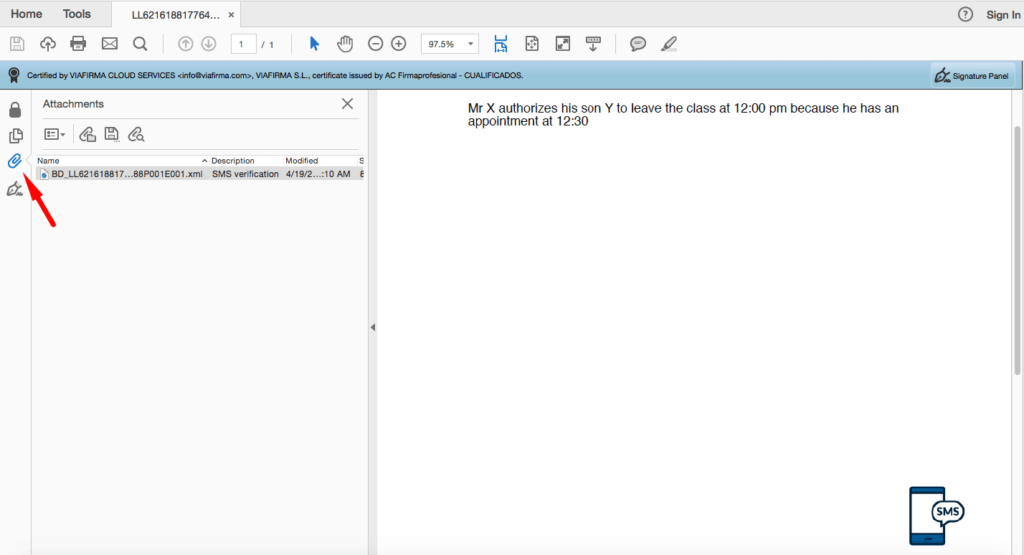
This is an XML file with information on the SMS OTP signature:
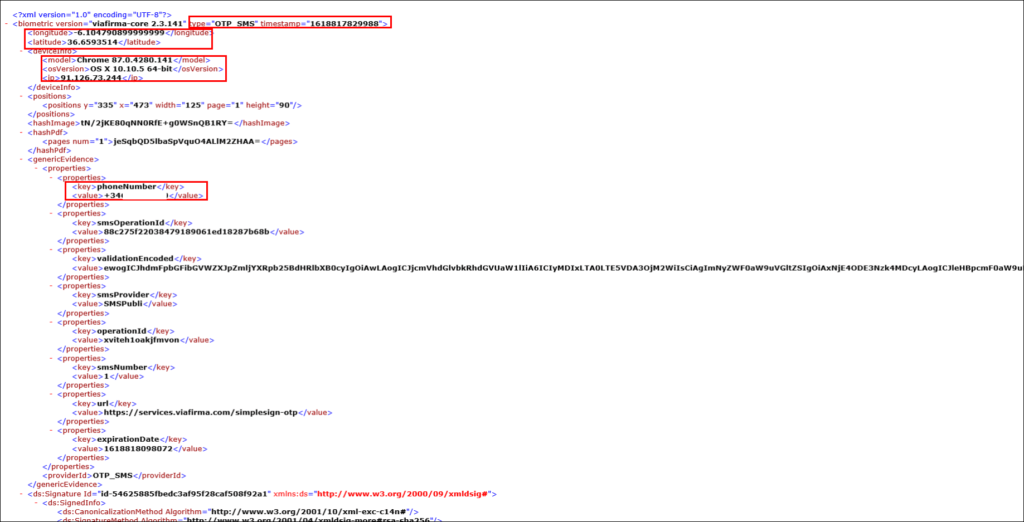
The timestamp indicates the date and time the evidence was collected. If we use a converter to human time we will obtain:
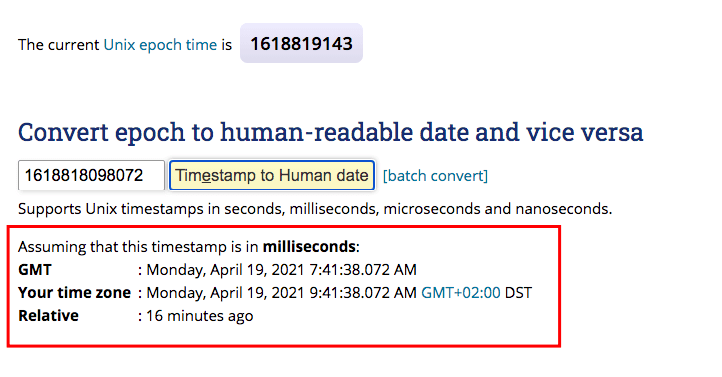
Therefore, the evidence was collected on Monday, April 19, 2021 at 9:41:38
Now let’s enter the location of the signature using Google Maps:
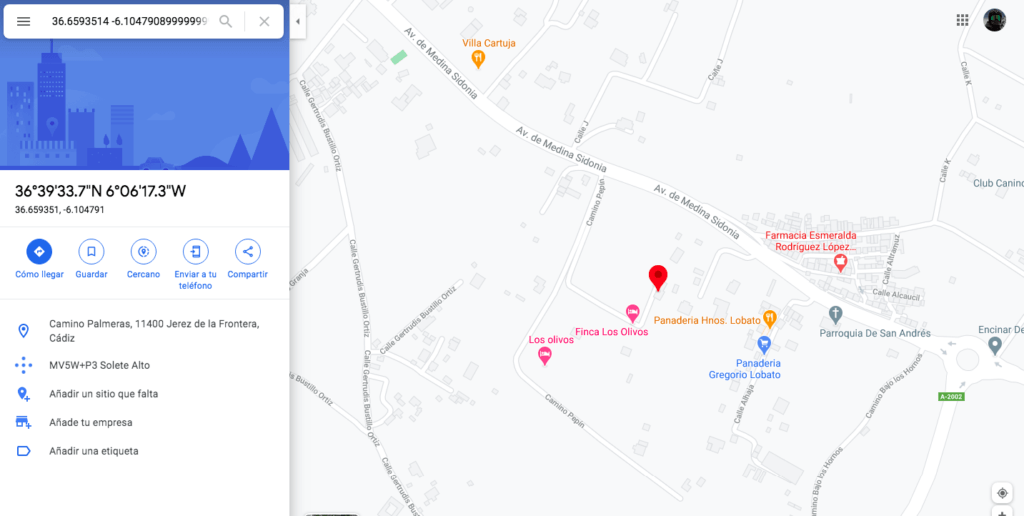
If we return to the XML file, below we have information about the device used by the signer.
Next, the phone number to which the code was sent
So as you can see, more information is collected when compared to the traditional handwritten signature.
Document electronically signed using biometric signature
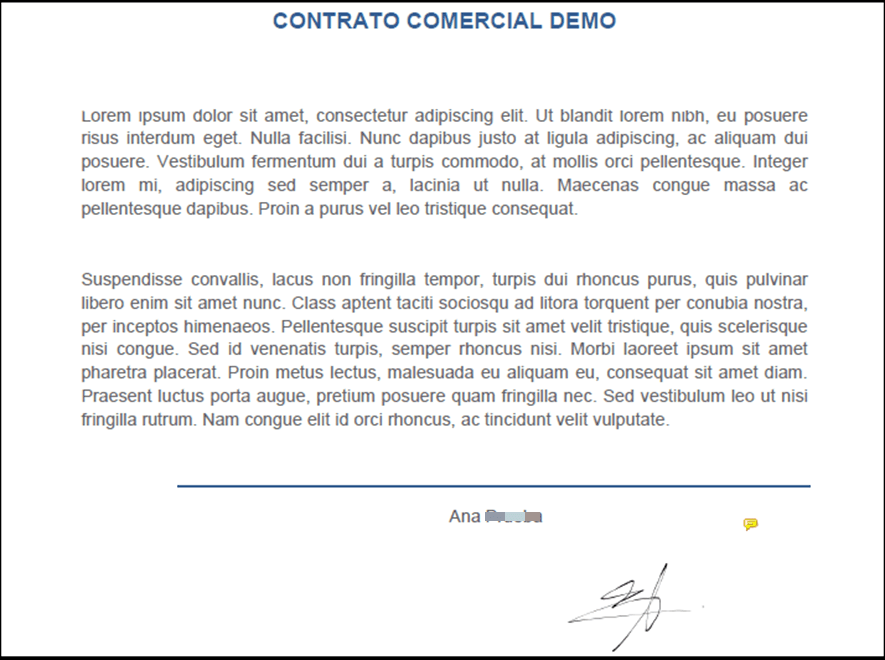
In order to draw a biometric signature we must use specific devices designed for this purpose. Data such as the speed, stroke or pressure applied when signing will be collected.
If we sign with the mouse of the PC or if we draw the signature with our finger on the phone screen, biometric data will not be collected. In the following image we can see an example of the attached XML file that will be generated.
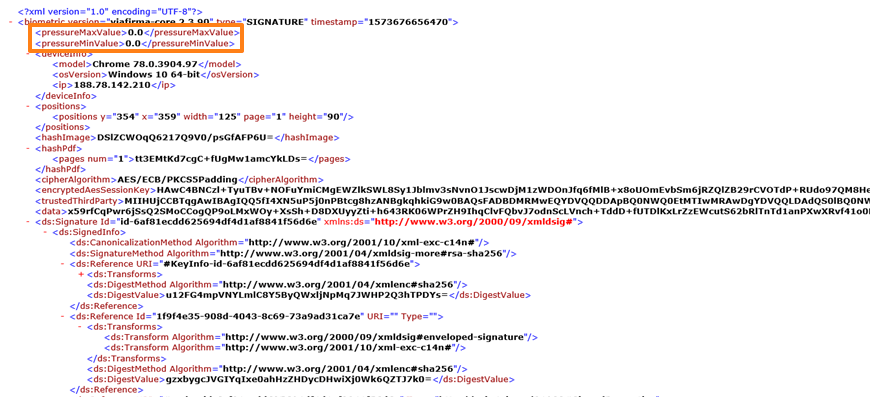
As we can see, pressure values such as “pressureMaxValue” and “pressureMinValue” are set to zero in this case.
In case the signature was captured on a device capable of collecting biometric data, the values would be encrypted to prevent anyone else from replicating the same signature.
VALIDe
VALIDe is a free tool from the Spanish Government which allows any citizen to verify signed documents. Simply upload your signed document to the platform and click on validate.
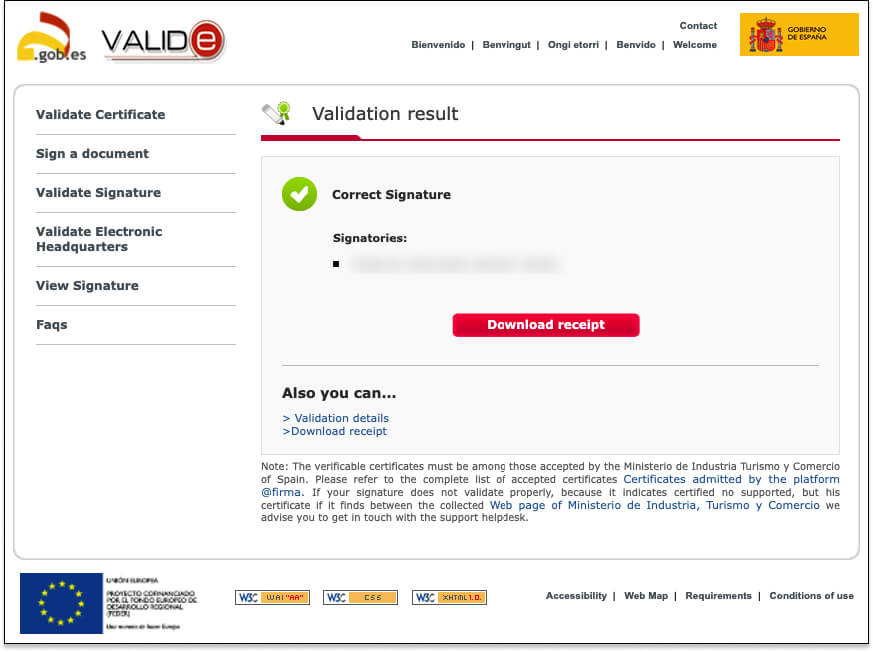
Other legal evidence and eSignatures
Besides the digital certificate, SMS OTP and biometric signature, Viafirma supports other signing methods, for example fingerprints which are often used in Latin American countries, but also other legal evidence which may be suitable for some processes.
Pictures
Attaching images to the document can be sometimes very useful, especially when signers need to present their ID Card:
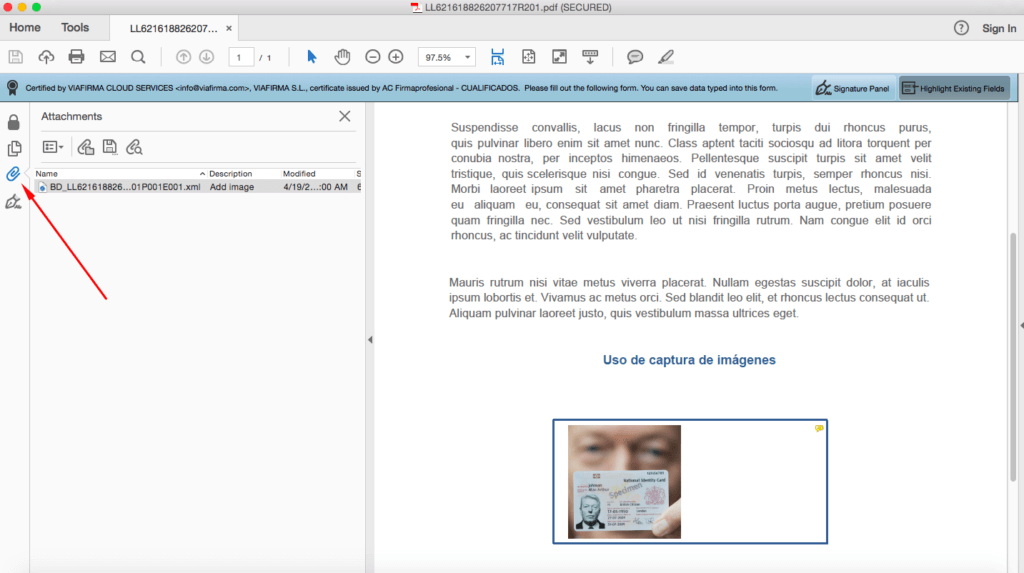
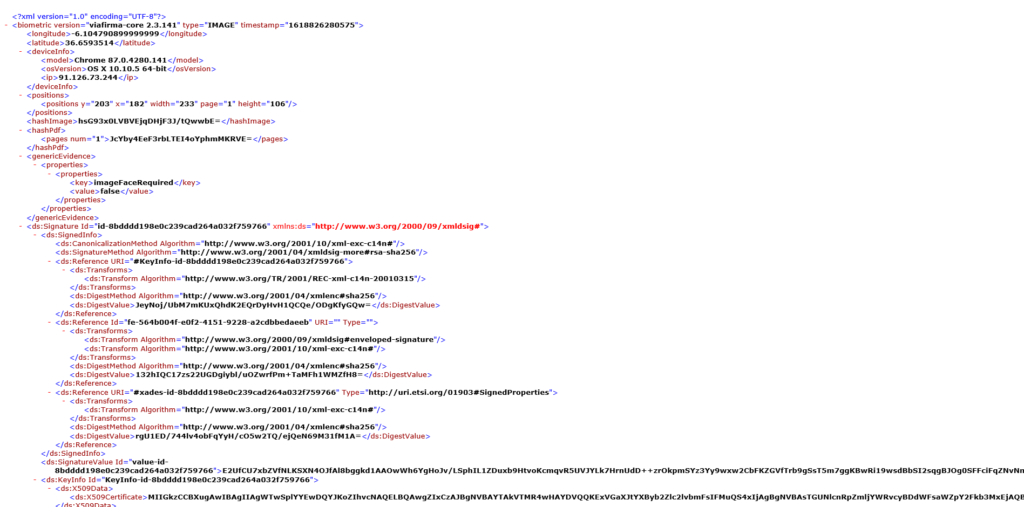
Apart from the ID Card picture, this type of legal evidence also generates an XML file attached to the PDF with all the data related to the image attachment.
Checkboxes
One of the most useful legal evidence when eSigning a contract/document are checkboxes. These are very handy to record the signatory’s acceptance to a certain clause.
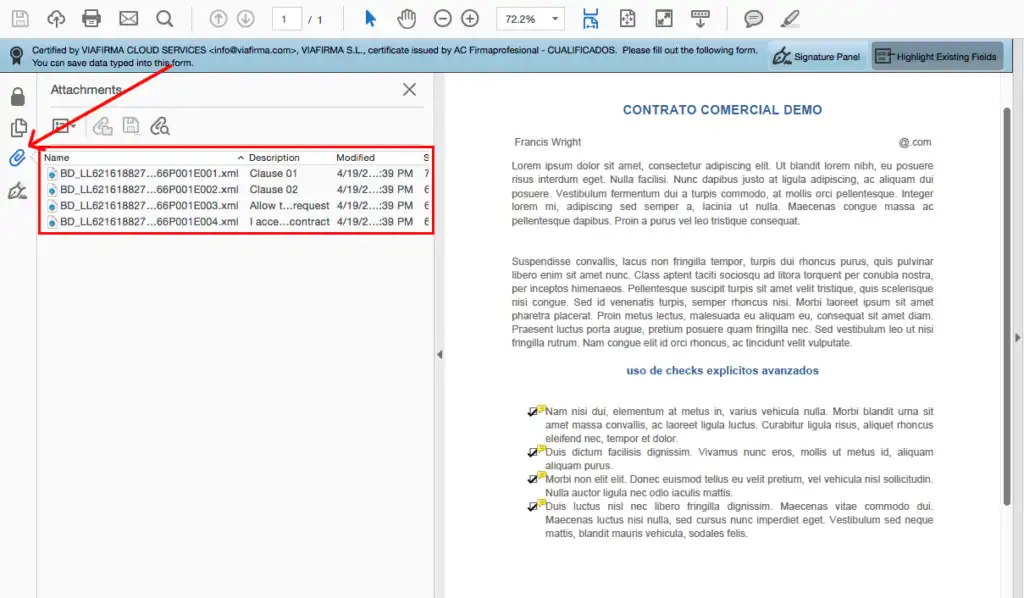
As for the rest of the evidence, in addition to the graphic representation of the check, an XML file with information about the evidence will be automatically generated in the PDF file.
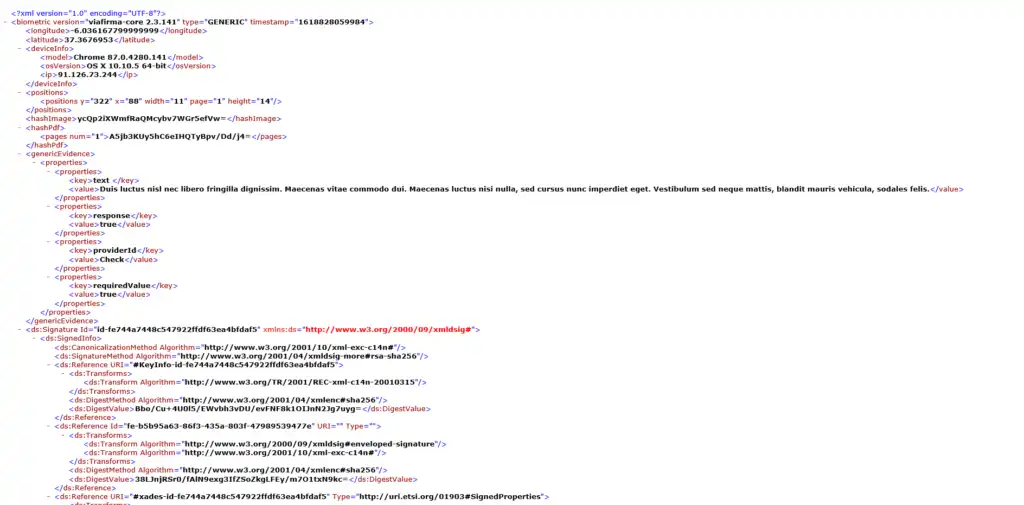
Together with the signed document an “Audit-trail” or “Audit-log” is also generated. This is a clear and orderly compilation of all the legal evidence and events collected during the signing process available to the user
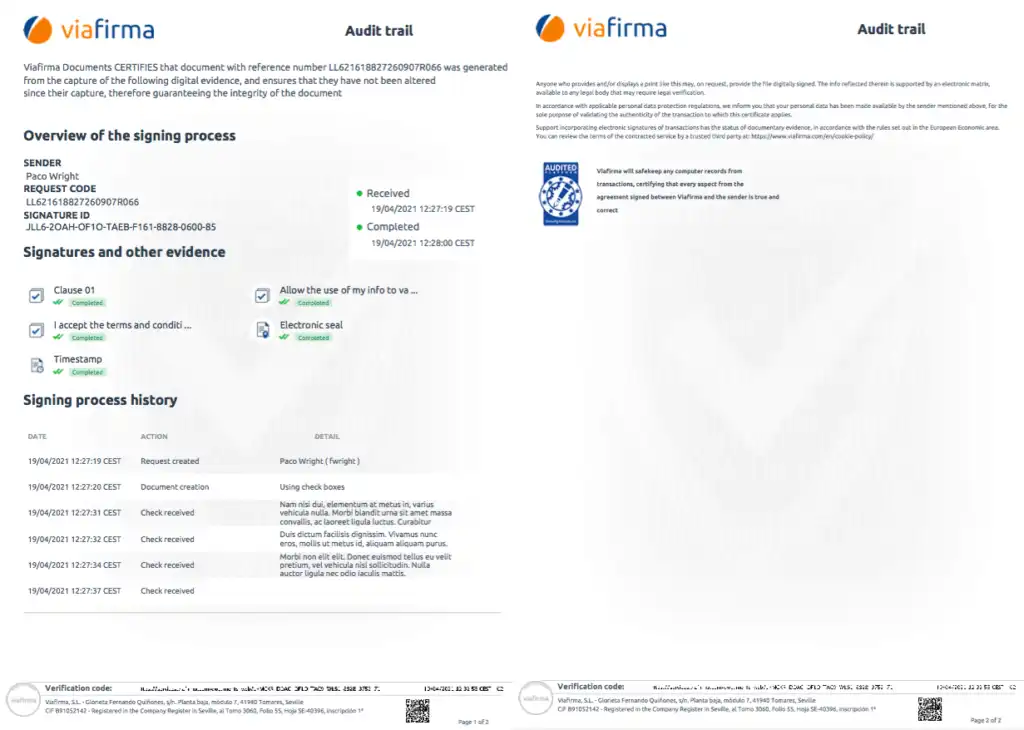
Though the Audit trail provides clear and simple information on the signing process, we must insist that it is the document itself that proves that it is electronically signed, since it contains information on the signatures and legal evidence captured during the process.
In addition to what we have seen above, Viafirma offers other types of legal evidence, such as the fingerprint capture, utterance or video
